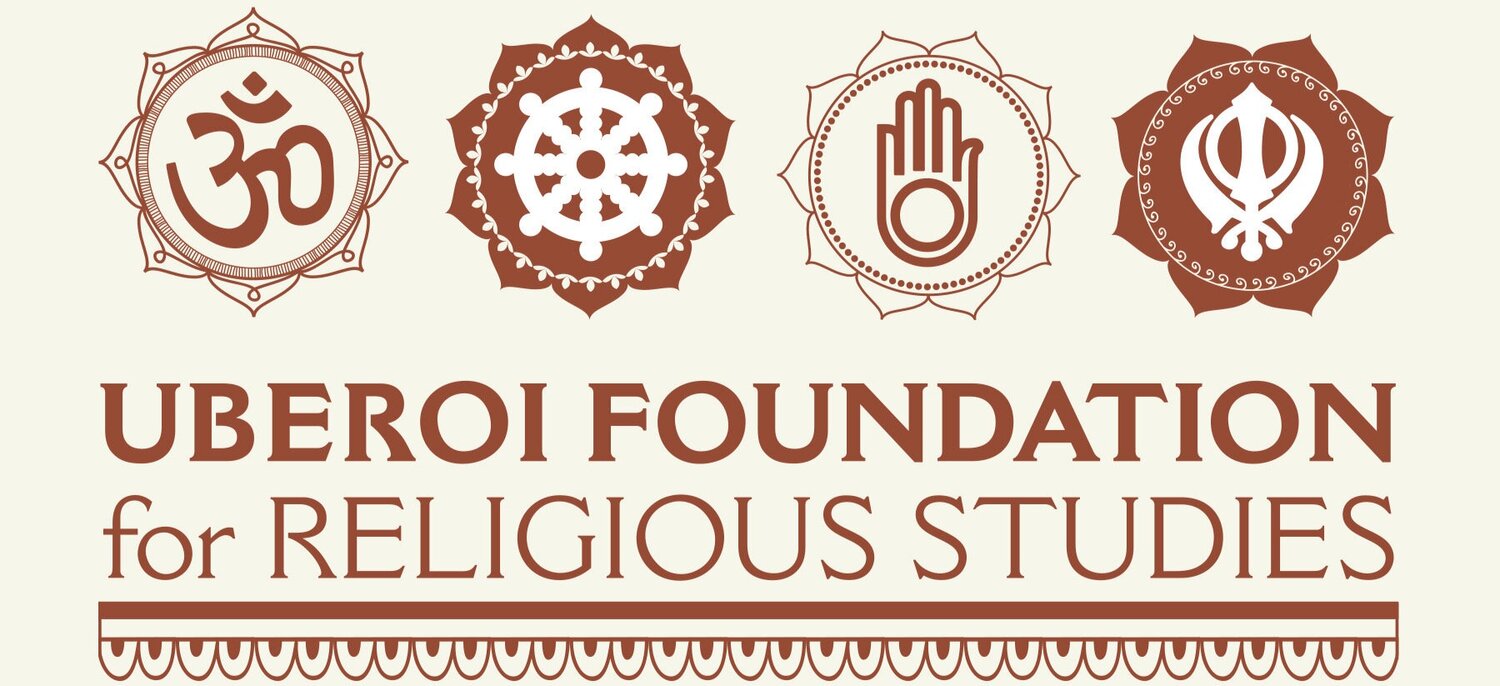Mahinder Uberoi
Mahinder Uberoi was born in Delhi, India on March 13, 1924. He earned a doctor in science degree in engineering and lived for most of his adult life in the United States, primarily in Boulder, Colorado. Professor Uberoi passed away in 2006 as a retired academic having chosen to live with very little pretense and ostentation. His wealth, however, was considerable, and his assets today help to raise awareness of Buddhism, Hinduism, Jainism, and Sikhism in an effort to promote understanding, communication, tolerance and peace in the world.
Education
Mahinder Singh Uberoi grew up in Sialkot, India, and received a bachelors of science degree from Punjab University in 1944. Subsequently, he studied in the United States, earning a masters degree from the California Institute of Technology in 1946 and a doctor in science degree in engineering from the Johns Hopkins University in 1952.
Academic Leadership
Professor Uberoi began his academic career on the faculty of the Department of Aeronautical Engineering at the University of Michigan from 1953 until 1963. During that period, in 1958, he earned early professional distinction as a John Simon Guggenheim Memorial Fellow at the Royal Institute of Technology in Stockholm.
In 1963, Professor Uberoi moved to Boulder, Colorado, where he lived for more than forty years until his death in 2006. From 1963 to 1975, he served as the chairman of the Department of Aerospace Engineering Sciences at the University of Colorado. Four U.S. astronauts graduated from the Department during those years, including Ellison Onizuka who died with other members of his distinguished crew aboard the space shuttle Challenger in 1986.
As chairman, Professor Uberoi added faculty and advanced basic research in the fields of fluid mechanics, modern control systems, and the biological sciences. Adolf Busemann, the father of supersonic aerodynamics, joined the department in 1963. Much of Professor Uberoi’s academic career involved research and teaching far from his adopted city of Boulder, Colorado. In 1966, he was an exchange scientist with the Soviet Academy of Sciences. Between 1972 and 1974, he was an invited professor at the University of Quebec, followed thereafter in 1974 as a visiting scientist at the Max Plank Institute of Astrophysics in Munich. From 1975 to 1976, Professor Uberoi was an honorary research fellow at Harvard University, and he returned to the University of Colorado between 1981 and 1982 as a Croft professor.
Scientific Achievement
Professor Uberoi made innumerable contributions to scholarly literature during his career, on topics such as turbulent flow, magneto-hydrodynamics, and combustion. He was the editor of Cosmic Gas Dynamics by Evry Schatzman and Ludwig Bierman. He served on the steering committees associated with the Laboratory for Atmospheric and Space Physics from 1966 to 1969 and with the Cooperative Institute for Research in Environmental Sciences from 1967 to 1969 at the University of Colorado. He organized the all-university Seminar on Environment and Public Policy from 1970 until 1975. He directed and organized a science of flight program of High School Honors Institute from 1968 to 1974, directed the Summer Institute for Disadvantaged High School Students in 1969, and directed and lectured in the Pre-Engineering Program for many years.
Posthumous Orientation
Mahinder Uberoi passed away on November 25, 2006. He never married and had no children. In 1986, twenty years before his death, he signed his last will and testament. In that document, Professor Uberoi ordered that his assets be used to establish a foundation “for the scholarly study of Buddhism, Hinduism, Jainism, and Sikhism, and other related religions and their music and arts.” In implementing his mission, he made it clear that his intent was not to proselytize. “Scholars need not have any particular faith or beliefs,” he wrote. To carry out his mission, Professor Uberoi intentionally left much judgment to the men and women who would be named as trustees of the foundation. Nevertheless, by way of example, he wrote, “Obvious candidates for support are persons who are regularly engaged in scholarly work, such as universities, institutes, and religious centers.”
Deploying the assets of Prefessor Uberoi upon his death, the Uberoi Foundation for Religious Studies requested and subsequently received authorization as a tax-exempt private foundation by the U.S. Internal Revenue Service on December 13, 2007. The five founding trustees of the Foundation wish to express particular gratitude to a former student of Professor Uberoi, Mr. Randy Nishiyama, for his tireless and selfless work in helping to lay the groundwork for the Foundation. Along with founding trustee Parveen Setia, Mr. Nishiyama provided a most thoughtful and invaluable service in memory of the man who was once his educator.


